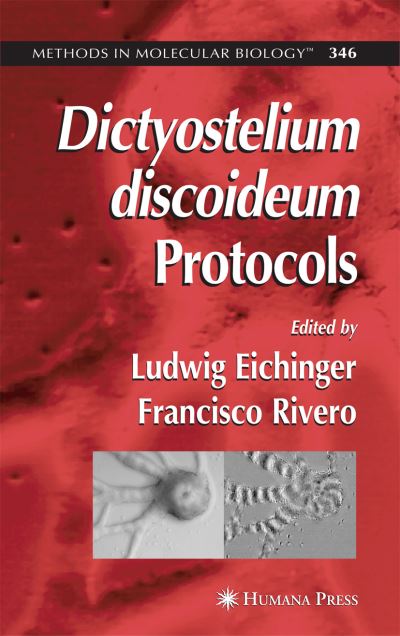
Dictyostelium discoideum is a simple but fascinating eukaryotic microorg- ism, whose natural habitat is deciduous forest soil and decaying leaves, where the amoebae feed on bacteria and grow as independent single cells. Exhaustion of the bacterial food source triggers a developmental program, in which up to 100,000 cells aggregate by chemotaxis towards cAMP. Morphogenesis and cell different- tion then culminate in the production of spores enabling the organism to survive unfavorable conditions. Dictyostelium offers unique advantages for studying f- damental cellular processes with the aid of powerful molecular genetic, bioche- cal, and cell biological tools. These processes include signal transduction, chemotaxis, cell motility, cytokinesis, phagocytosis, and aspects of development such as cell sorting, pattern formation and cell type differentiation. Recently, D- tyostelium was also described as a suitable host for pathogenic bacteria in which one can conveniently study the process of infection. In addition, Dictyostelium has many of the experimental conveniences of Saccharomyces cerevisiae and is pr- ably the best experimentally manipulatable protozoan, providing insight into this diverse group of organisms, which includes some of the most dangerous human parasites. The recent completion of the Dictyostelium genome sequencing project strengthens the position of D. discoideum as a model organism. The completed genome sequence and other valuable community resources constitute the source for basic biological and biomedical research and for genome-wide analyses.
| ISBN: | 9781617376771 |
| Publication date: | 19th November 2010 |
| Author: | Ludwig Eichinger |
| Publisher: | Humana Press |
| Format: | Paperback |
| Pagination: | 564 pages |
| Series: | Methods in Molecular Biology |
| Genres: |
Biochemistry Cellular biology (cytology) |